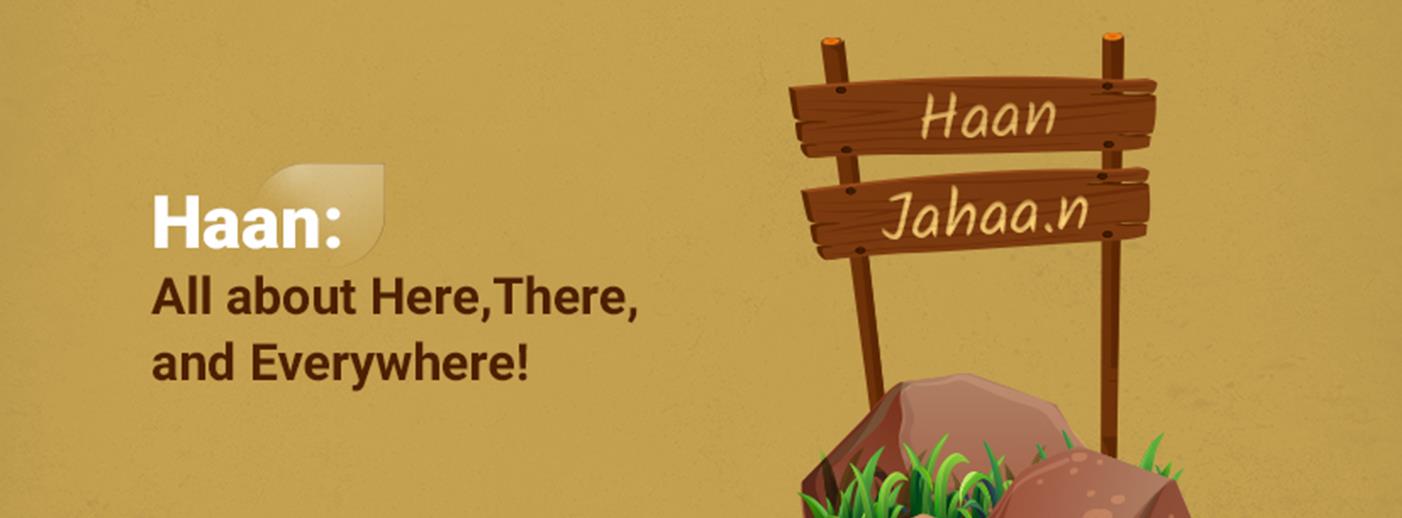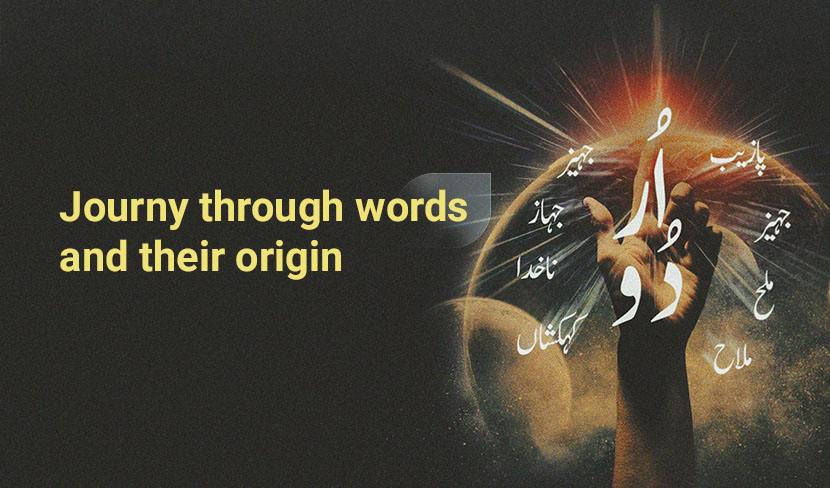زیادہ تلاش کیے گئے الفاظ
محفوظ شدہ الفاظ
کِھسیانی بِلّی کَھمبا نوچے
جسے غصہ آرہا ہو وہ دوسروں پر اپنی جھلاہٹ اتارتا ہے، بے بسی میں آدمی دوسروں پر غصہ اتارتا ہے، شرمندہ شخص دوسروں پر اپنی شرمندگی اتارتا ہے، کمزور کی جھنجھلاہٹ
چَمَنِسْتان
ایسا باغ جہاں پھول کثرت سے ہوں، ایسی جگہ جہاں دور تک پھول ہی پھول اور سبزہ سبزہ نظر آئے، گلزار، گلستان، باغ، پھولوں کا قطعہ، سبز کھیت
Haan: All about Here, There, and Everywhere!

kaabe me.n jaa.n-ba-lab the ham duurii-e-butaa.n se
aa.e hai.n phir ke yaaro ab ke KHudaa ke haa.n se
Mir Taqi Mir
Words morph, pronunciations whirl, expressions change, and meanings shift, but rarely do we come across utterances that have been so drastically revamped that modern-day speakers need a reintroduction to what they originally sounded like.
Today’s blog features one such word that we have long embraced in our Roz-Marra, but differently.
Haan, commonly known as yes, is a word well known and understood. But there is another archaic side of it that needs a revisital, a recountal!
Urdu-wise readers would’ve already identified it in Mir’s couplet above - KHudaa ke haa.n se, meaning from God’s place, i.e., The Holy Kaaba. For Urdu-light folks, there’s a whole lot to dive into!
In its original sense, ‘Haan’ means ‘here’, or ‘this place’. The word is actually a corrupted form of the Sanskrit Sthana (place). Interestingly, Sthana literally means the place where one stands, or remains, i.e., home or dwelling. On similar lines, the word mirrors Qiyam in Urdu, which also means standing, but also extends to mean a place of stay. That’s why we commonly hear in Urdu, “Un kaa qiyam in dino.n fulaan jagah hai”.
At this point, it’s also good to take note of the Persian side of things, because eventually, this will allow us to draw a close parallel on how two different words have undergone a similar evolution.
Remember our Jaa blog? If you do, you’d know that Jaa means place in Persian. The same turns into iin-jaa (here) and aan-jaa (there). Here’s a - personal favorite - couplet by Urfi Shirazi who masterfully versifies these two words:
Mohabbat sham’-e-bazm-e-quds-o-maa parwaana-e-bairuu.n
Che haal-ast in nami-daanam, charaagh aanjaa-wa-duud iinjaa
Passion, the beacon of gathering of sacredness, and I, the firefly on the out
What state this, I know not; the burning lamp there, the smoke here
Now with the background set, let’s return home. You must have heard, ii-haa.n and uu-haa.n (without the nasalization) for ‘here’ and ‘there’ in Awadhi, Braj, and Bhojpuri. The lineage of these two words can also be traced back to the two Persian words above. But what’s even more interesting is that iin and aan later morphed into ya-haa.n and wa-haa.n.
From a script standpoint, Urdu readers would of course know ‘ii’ and ‘uu’ are written the same as ‘ya-’ and ‘wa-’. Later, these vowels turned into semi-vowels, as it so often happens. Case in point, the word Musawwada – predominantly pronounced as Masauda – is a result of this very kind of digression.
The very same kind of thing happens with Jahaa.n that’s formed of the Sanskrit Yat and Sthana, meaning that place (unknown), and Tahaa.n, formed of Tat and Sthana, meaning that place (known).
As a quick rundown, thus far we’ve figured out the word’s full rationale of evolution - Haan coming from the Sanskrit Sthana; Ya- and Wa- diluting from the Persian iin and aan; Ta- and Ja- from Sanskrit Tat and Yat. Now is a good place to dive into the question: ‘kahaan’ kahaan se aaya?
Well, it comes from the Sanskrit interrogative Kim (किम्), which later became Ka in Hindustani, and Ki in Punjabi, forming Kahaan and Kitthe in the two languages respectively. Additionally, the ‘th’ sound that you hear in Punjabi again finds its roots in Sthana.
Interestingly, Kahaan’s Persian twin, namely Kujaa, is also inspired by Kim, first molding into Kuu, meaning where/who, and later shortening to just Ku and clubbing with Jaa.
Here’s a fine verse by Ismail Merathi, demonstrating fine skill in wordplay:
kujaa hastii bataa de tuu kahaa.n hai
jise kahte hai.n bismil niim-jaa.n hai
On that note, let us know if this piece was informative and if you’d have more yahaan-wahaan ki baaten about these words!
Delete 44 saved words?
کیا آپ واقعی ان اندراجات کو حذف کر رہے ہیں؟ انہیں واپس لانا ناممکن ہوگا۔





